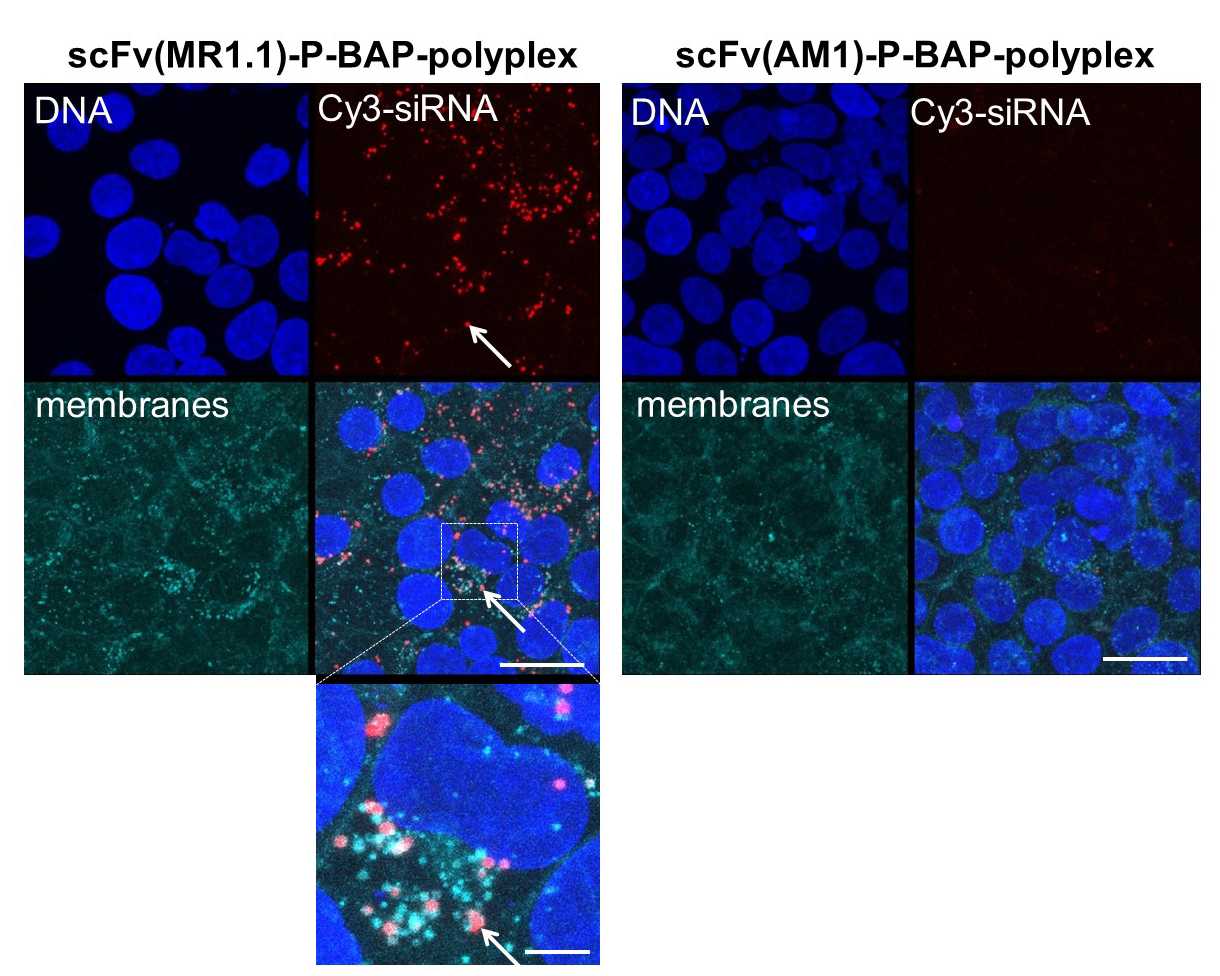Achim Temme Group
Tumor-Targeting Nanoparticles, Natural Killer Cell Biology & Immunotherapy

Endosomal Toll-like-receptors in tumor cells and targeted delivery of TLR agonists for in situ vaccination of cancer
Molecules fundamental to inducing an immune response in various cell types are Toll-like receptors (TLRs) and their cognate ligands. TLRs are a conserved family of pattern recognition receptors (PRRs) with 10 functional members in humans. They are expressed as homodimers and some as heterodimers, respectively, in a variety of immune cell types and other cell types including tumor cells. Natural TLR ligands are pathogen-associated molecular patterns (PAMPs), or in other words, “danger signals”, normally not present in the host, but provided by microbiological pathogens such as bacteria and viruses. TLRs are type I membrane proteins comprising an ectodomain containing leucine-rich repeats, a transmembrane domain and an intracellular Toll/interleukin-1 receptor/resistance protein (TIR) domain. TLR3, 7, 8, and 9 are found in intracellular compartments of endosomes and lysosomes. TLR3 and TLR7 recognize dsRNA and ssRNA molecules from viruses whereas TLR9 senses bacterial DNAs containing non-methylated CpG motifs.
Our group focuses on exploiting the concept of targeted delivery of nucleic acid-based TLR agonists to endosomes by employing antibody- and ligand-conjugated nanoparticles specific for surface receptors on tumor cells. Work of our group could show that crosslinking of surface receptors induced internalization of dsRNA agonist-loaded nanoparticles and subsequently resulted in a type I-interferon response and apoptosis of tumor cells. Ongoing experiments will characterize the modes of cellular immune responses using different nucleic acid-based TLR agonists. Present work uses the targeted delivery of dsRNA for eliciting and investigating innate and adaptive immune anti-tumor responses in vitro and in immune-competent in vivo models.
Targeted delivery of nucleic acids
Our group has established modular nanoparticles based on poly-cationic nucleic acid carriers and targeting devices (i.e. single chain antibodies, peptide ligands) for targeted gene therapy and ex vivo modification of target cells. Recent work of our group demonstrated a targeted delivery of siRNAs to targets cells and tumors in vitro and in vivo. Ongoing work focus on the use of therapeutic RNAi using for instance Survivin-specific siRNA/shRNA for tumor treatment but also on non-viral gene delivery of the Sleeping Beauty Transposon system for genetic modification of lymphocytes.
NK cell biology and immunotherapy
Natural killer cells (NK) are able to recognize and kill tumor cells with loss of HLA class I expression and concomitant decrease of HLA-E on their surface. However, some tumors still express HLA class I, and NK cell reactivity against HLA I-negative solid tumors can be dampened by inhibitory non-classical HLA or by the lack of activating ligands on the surface of the tumor cells. Our group aims at establishing a NK cell-based immunotherapy using chimeric antigen receptors (CAR) consisting of single chain antibody fragment targeting surface tumor-antigens and the DNAX activation protein of 12kDa (DAP12). NK cells engrafted with these CARs confers selective cytotoxicity against antigen-positive target cells expressing HLA class I molecules and delays tumor growth in NMRInu/nu mice and also increases mean survival times. Present work deals with the production process of CAR-NK cells using newly established proprietary feeder cells lines and new concepts for enhancing NK cell responses towards cancer cells.

Future Projects and Goals
- Role of endosomal TLRs in tumor cells, mode of response and novel concepts for cancer immunotherapy exploiting TLR agonists
- Investigating primary NK cells and CAR-NK cell-based therapeutics for cancer immunotherapy
- Sleeping Beauty Transposon system for targeted gene therapy and ex vivo modification of lymphocytes
Methodological and Technical Expertise
- Cell culture methods (permanent/ primary cell lines, migration assays, clonogenic survival, apoptosis/cell cycle analyis, sphere assays, etc.)
- Recombinant DNA technology (vector cloning, PCR-methods, transfection, retro-/lentivral gene transfer, Sleeping Beauty) and RNAi techniques (shRNA/siRNA)
- Recombinant protein production (single chain antibodies and derivatives, posttranslational biotinylation)
- Protein biochemistry (Western Blot, ELISA, G-LISA, IF, Fluorescence Polarization)
- Magnetic cell sorting and FACS analysis
- Xenograft and syngenic mouse tumor models